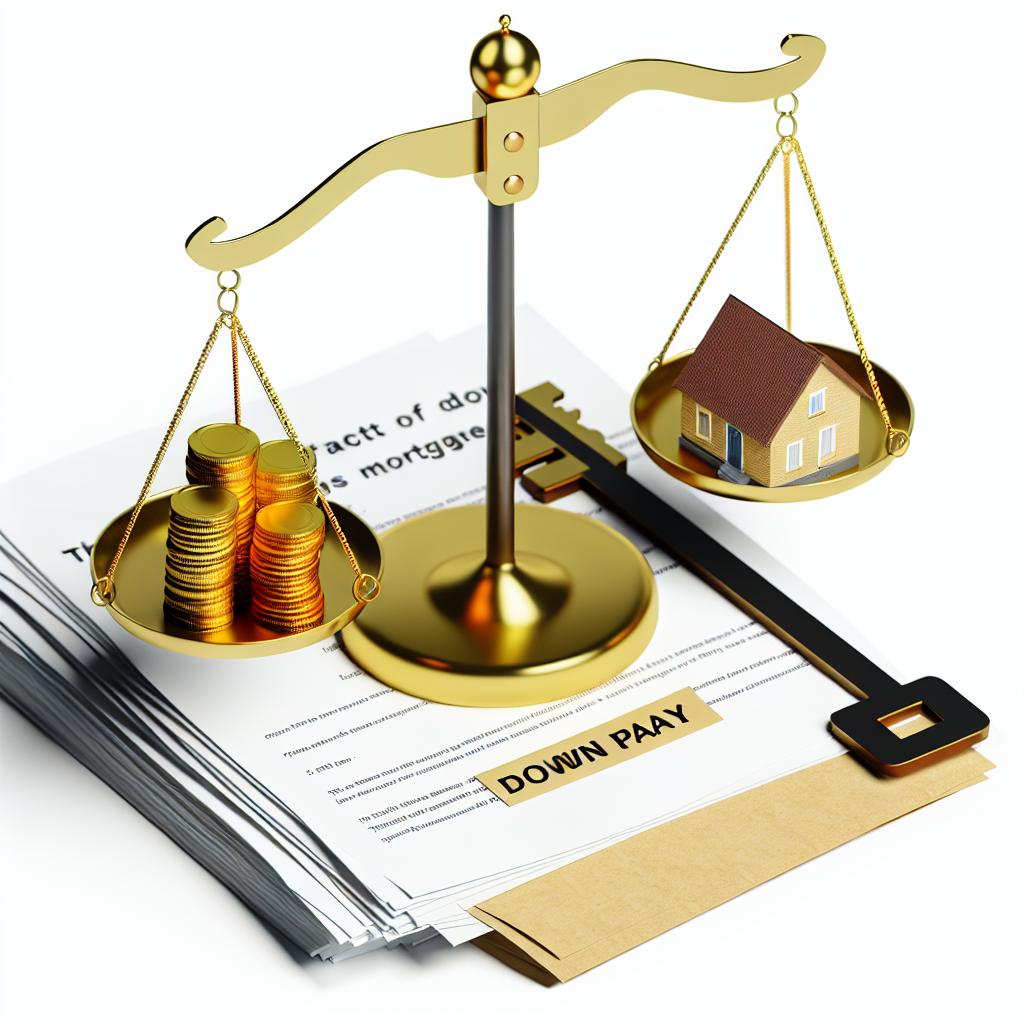
When exploring the world of homeownership, the concept of a mortgage plays a critical role, and within this framework, the down payment emerges as a pivotal factor. Recognizing the influence of down payments on mortgage terms can be key to making decisions that harmonize with your financial objectives and long-term stability.
A down payment represents the initial sum of money paid at the outset when purchasing a home. It is typically denoted as a percentage of the total purchase price of the property. Making a larger down payment can often lead to more favorable mortgage terms, which can translate into financial advantages in the long run.
A significant down payment can have a noteworthy effect on the interest rate associated with your mortgage. Lenders usually perceive borrowers who can provide a substantial down payment as lower risk, enabling these borrowers to access more attractive interest rates. Even a minor reduction in interest rates can culminate in considerable savings over the duration of the mortgage, underscoring the profound impact of a substantial down payment.
One of the notable aspects connected to down payments is the consideration of mortgage insurance. Generally, if your down payment is below 20%, you might be obligated to pay private mortgage insurance (PMI). This cost serves as a protection for the lender in the event of a default. Augmenting your down payment to at least 20% allows you to circumvent PMI, thereby lowering your monthly expenses and potentially enhancing your financial comfort.
An increased down payment naturally reduces the principal loan amount. This reduction in the loan amount results in lower monthly mortgage payments. Such a decrease not only benefits your monthly financial plan but also improves eligibility for certain types of loans or mortgage terms that are more advantageous. Ensuring that your monthly mortgage payments are comfortably manageable is crucial in maintaining long-term financial health.
A greater down payment directly contributes to higher equity in your home right from the start. This initial equity can play a pivotal role if you opt for refinancing in the future or encounter financial hurdles. Additionally, equity can serve as a critical financial safeguard, especially in times of real estate market uncertainties. Having substantial equity can enhance your financial flexibility and fortitude in adapting to changing market conditions.
Determining the appropriate amount for a down payment necessitates careful consideration and balance. It is imperative to assess your current financial scenario along with your future financial ambitions. While saving rigorously for a larger down payment is advantageous in the long term, it is equally important to ensure that it does not exhaust essential reserves like emergency savings or retirement funds. Balancing these financial priorities is key to a sound home purchasing strategy.
The impact of down payments on your mortgage terms is profound, influencing a spectrum of factors from interest rates to monthly payments and overall financial security. Delving into these dynamics further can be beneficial for potential homeowners, and consulting professionals such as housing finance advisors or financial planners can provide valuable insights. For comprehensive guidance on managing mortgage-related finances, visiting resources like the Consumer Financial Protection Bureau can be advantageous, offering information that is crucial in navigating the complexities of mortgage processes.
Understanding these aspects not only prepares you for the upfront costs but also positions you strategically in maintaining financial health throughout the tenure of your mortgage. By examining how each element of a down payment affects the broader picture, homeowners can craft a more resilient and informed approach to homebuying that aligns harmoniously with both immediate needs and future goals.
This article was last updated on: March 17, 2025